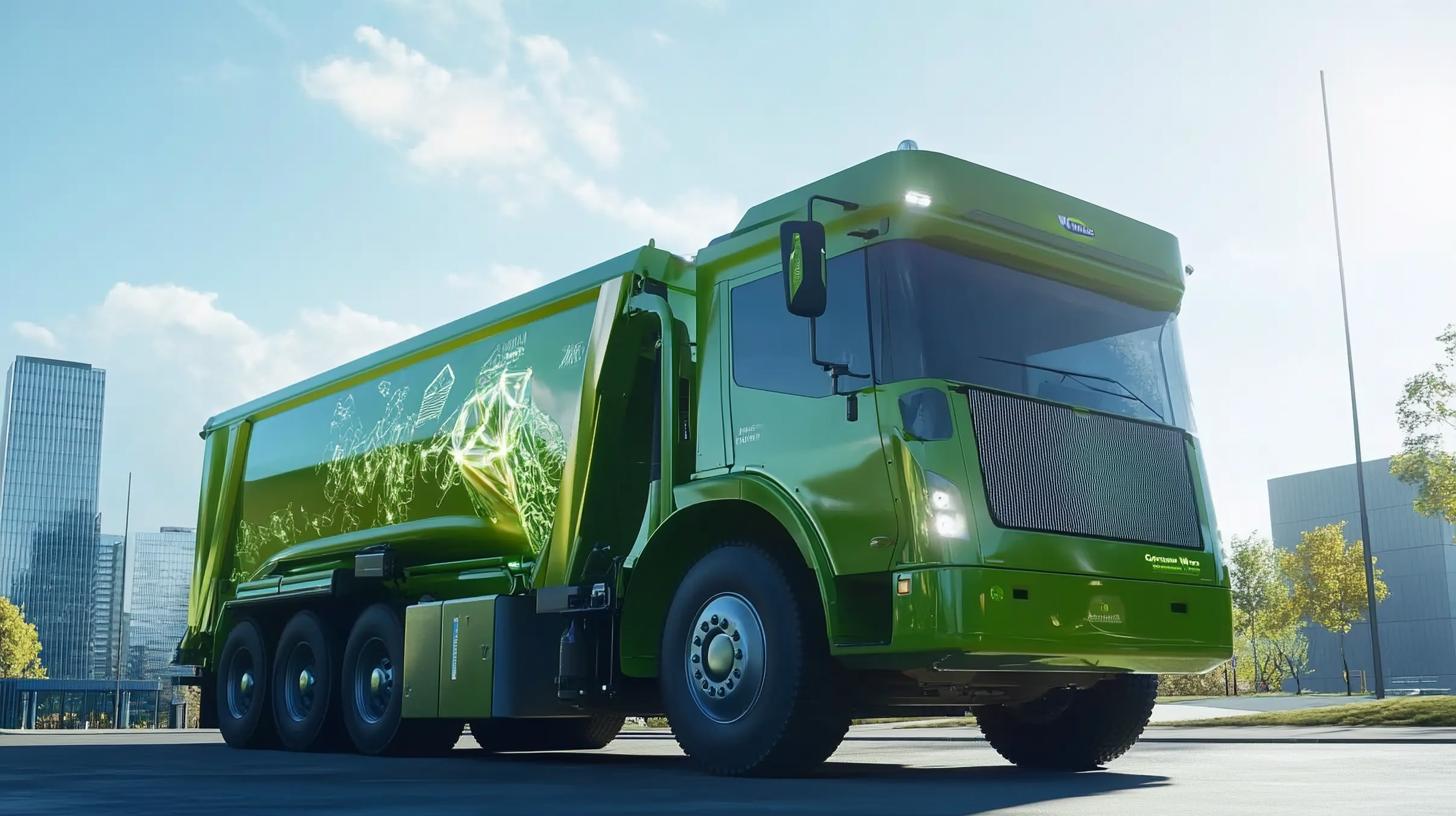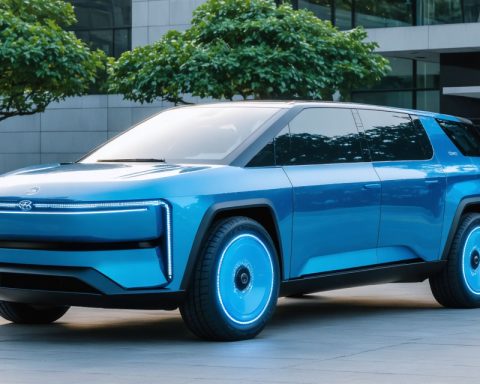In a groundbreaking move for sustainable waste management, GreenWaste is set to become the first company in North America to operate hydrogen-powered refuse trucks. This pioneering effort is part of a broader purchase agreement with Hyzon, a leader in hydrogen fuel cell technology, to acquire 12 zero-emission vehicles.
GreenWaste, a trailblazer in recycling innovation, is continuing its legacy of environmental stewardship by adding these high-tech trucks to its fleet. Their goal is to significantly cut greenhouse gas emissions, aligning with their ambitious target to reduce emissions by 45% by 2030 from a 2022 baseline. Having already achieved a 36.3% reduction, GreenWaste is accelerating its efforts with this new technology.
Built in collaboration with industry leader New Way Trucks, these state-of-the-art vehicles use Hyzon’s revolutionary 200kW Fuel Cell System, marking a significant step forward in clean energy for heavy-duty applications. New Way’s experience in manufacturing durable refuse collection bodies complements Hyzon’s cutting-edge fuel cells, making an ideal synergy for decarbonizing waste transportation.
This initiative signals a bold move towards environmentally friendly solutions in the waste industry, with hydrogen fuel cells offering a sustainable alternative to traditional fossil fuels. The new trucks were trialed successfully around the Bay Area, showcasing their efficiency in typical refuse operations, from can-lifting to managing heavy payloads.
GreenWaste’s strategic investment not only underscores its commitment to sustainability but also sets a benchmark for North America’s waste industry. By embracing hydrogen power, GreenWaste is charting a course that promises reduced emissions and a cleaner future for urban environments.
Hydrogen-Powered Trucks: A Game Changer for the Waste Industry and Beyond
In recent developments concerning sustainable waste management, the integration of hydrogen-powered refuse trucks by GreenWaste represents more than just a technological leap. This shift has implications that ripple across industries and communities, highlighting both exciting opportunities and potential challenges.
How Does Hydrogen Fuel Impact Other Industries?
The integration of hydrogen fuel technology in vehicles offers a glimpse into how this clean energy source can transform industries beyond waste management. The benefits include reduced carbon footprints and noise pollution alongside an increase in operational efficiency. This innovation could inspire similar transitions in public transportation, manufacturing, and even the shipping industry, which are traditionally dependent on fossil fuels.
Why Aren’t All Companies Making the Switch?
The transition to hydrogen technology is not without its challenges. The cost of development and infrastructure, such as fueling stations, is substantial. Furthermore, hydrogen production predominantly relies on natural gas, raising concerns over the true sustainability of this resource. Addressing these challenges requires both financial investments and advancements in green hydrogen production methods, like electrolysis powered by renewable energy.
Community Benefits and Changes
Aside from environmental gains, hydrogen-powered vehicles have potential socio-economic impacts on communities, particularly urban regions facing air quality challenges. Cities adopting such technologies could see improved air quality and reduced health issues linked to air pollution. Moreover, these changes may drive job creation in the new sectors required for hydrogen infrastructure and maintenance.
Will Hydrogen Fueling Infrastructure Keep Up?
For hydrogen-powered transportation to become mainstream, a robust infrastructure network is necessary. In regions where such networks are developed, there are promising signs of reduced dependency on imported oil and enhanced energy security. Companies and city planners will need to collaborate on the strategic placement of refueling stations to ensure accessibility and efficiency.
The Broader Controversy
The controversy around hydrogen technology pivots on whether it is the ultimate solution for decarbonization or merely a stepping stone. Critics argue that widespread electrification using battery technology might be more viable given current infrastructure and advancements in battery efficiency. This debate will likely continue, with industry leaders like GreenWaste paving the way to prove hydrogen’s practical application.
Is Hydrogen Truly Sustainable?
Despite its zero-emission operation at the point of use, hydrogen’s sustainability is debated. The production methods must shift towards 100% renewable sources to create a genuinely clean lifecycle. Research and development investments are crucial to this transition, potentially reshaping environmental policies globally.
As GreenWaste leads the charge in hydrogen vehicle integration, the waste industry stands as a testament to innovation’s power to influence broader energy paradigms. These advancements propose a future where sustainable technology not only preserves but enhances quality of life globally.
For a deeper dive into the possibilities of hydrogen technology across industries, visit Hyzon Motors and GreenWaste.














